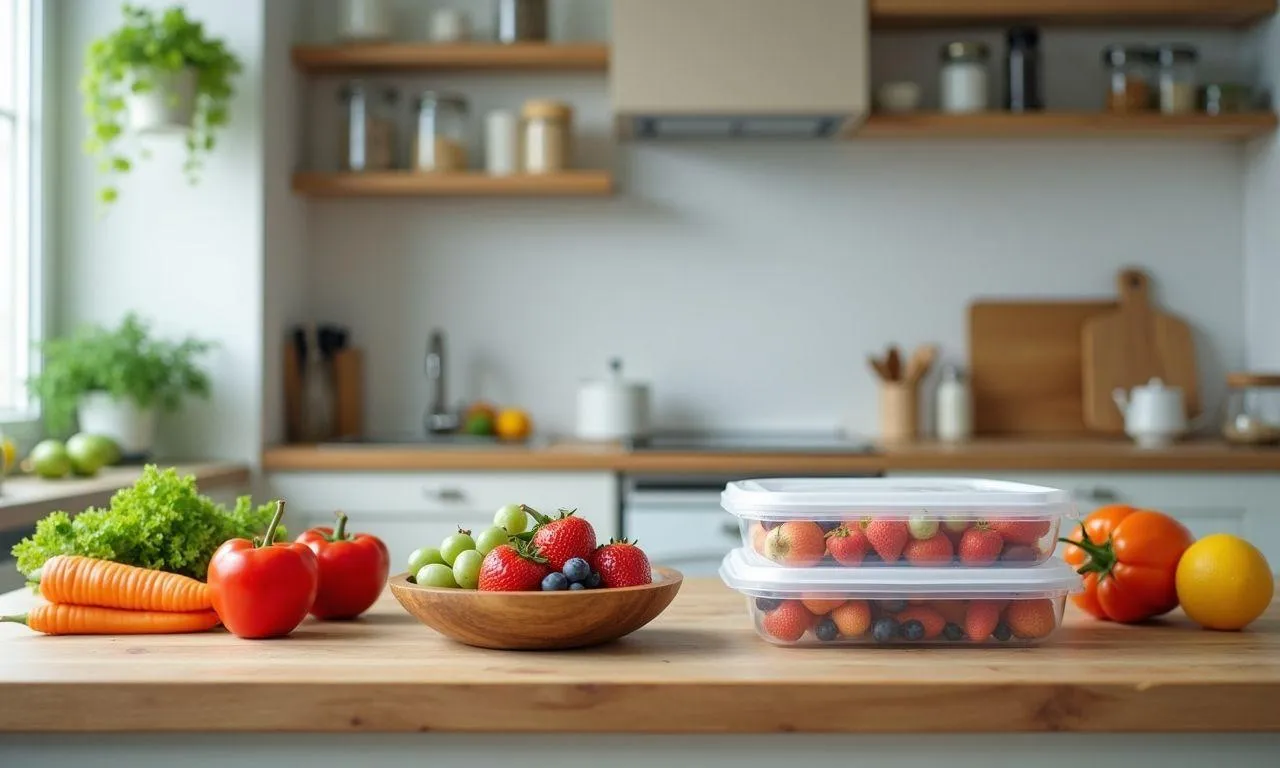- Lena Bauer
- October 23, 2025
- 3min.
- Report
5 Fundamental Principles of Healthy Cooking
The Polish cuisine, which can be seen during the next family gatherings, often includes meat fried in deep fat, potatoes with sauce, dessert in the form of cake, and all vegetables in a salad with mayonnaise. Fortunately, such dishes are consumed only occasionally, but in the daily diet, it is crucial to adhere to the fundamental principles of a healthy lifestyle. Unfortunately, even with the best intentions, many people often proceed in the wrong direction. Below is a list of five fundamental principles that will aid in making informed culinary decisions and leading a healthy lifestyle.
Table of Contents
1. Shun keeping sweets within grasp
There are individuals who eat merely to exist, others live exclusively for food, yet there exists a third category -- persons who eat solely because they observe something to consume. At some stage in life, we've all belonged to this third category. Such instances occur in moments of stress or boredom. Sweets innocuously lying on the table, gaze at us and shout: Eat me! The hypnotic effect of sweets, their color and flavor lead us sometimes to stop at one piece, and other times to consume an entire package. Keeping tempting sweets at home invites trouble. A better option is to avoid such products in the store and not bring them home. However, when we wish to have a supply of sweets for guests, it is preferable to store them at a hard-to-reach location, to resist temptation. On the kitchen counter, it's better to keep fruits and vegetables which are less tempting, but their consumption promises a longer feeling of fullness.2. Utilize the spice components
A child resides within all of us, yearning for a chemistry lesson where various substances are mixed, altering the hue of the mixture, its scent, and occasionally even its texture. This dream can now be realized in the kitchen, thanks to the appropriate spices. Spices do not merely enhance the flavor of food, they can also exert a significant impact on health. Numerous spices supply antioxidants – potent substances that combat destructive free radicals. The most illustrative examples are cloves, mint, and cinnamon. Certain spices, such as cayenne pepper, can stimulate postprandial thermogenesis, aid in accelerating metabolism, and maintain a lean physique. Turmeric, cinnamon, and ginger help reduce insulin levels, lead to improved insulin sensitivity, and offer protection against diabetes.3. Restrict the preparation of meals in deeper fat
Preparing meals in deeper fat can be harmful if you don't use suitable fat, don't control the quantity of fat, don't use a suitable pan, don't pay attention to the temperature and time of cooking. It's best to avoid preparing meals in deeper fat as it's the first and biggest error people make. It can also be best to avoid using fats and oils rich in polyunsaturated fatty acids or cholesterol. It's safer to steam or bake meals in the oven to reduce calorie intake.4. Advance planning and meal preparation
In urban settings or during travels, consuming low-quality and unsatisfactory products is common. In such circumstances, consuming a wholesome meal can pose a challenge or even appear unlikely. Occasional consumption of inferior items does not significantly impact the overall diet, but if such a practice becomes frequent, maintaining an appropriate figure can become more difficult. Therefore, it is worthwhile to plan and prepare meals in advance, store them in airtight containers, and bring them along, for instance, on a trip.5. Maintain cleanliness and freshness
Preserving cleanliness in the kitchen means fewer bacteria and contaminants that could potentially infiltrate food. The kitchen is a place where maintaining cleanliness is particularly significant, as leftover food scraps can spoil quickly and become a breeding ground for bacteria. Furthermore, maintaining cleanliness in the kitchen promotes healthy meal preparation.
Latest Nutrition Plans

Express Shape – 1600 kcal Protein Nutrition Plan – 3 Weeks to a Healthier You

Accelerated Transformation - a protein-rich plan with 1600 calories for 14 days

Revolutionize Your Body - A 7-Day Fast Protein Plan for Extraordinary Weight Loss

Ultra-Low Carb Adventure - A 4-Week, 1600 kcal Plan for a Lighter, Healthier You

Energize Your Life - A 4-Week High-Protein Slimming Plan with 1500 kcal for Energy and Weight Reduction

Sven's Plan - A 4-Week, 1500 kcal Slimming Program for Healthy Energy and Transformation

Express diet 1300 kcal - quick reduction in 4 weeks according to Sven

Step Up Your Life - A 4-Week, 1400 kcal High-Protein Slimming Plan

Fit Body - A 4-Week, 1400 kcal Healthy Slimming Diet for Optimal Results

Slim Plan 28 - A 28-Day, 2000 kcal Weight Loss Plan for Optimal Results

Dream Shape - A 4-Week, 1800 kcal Weight Loss Plan for Lasting Change.

Protein Power 4 - A 4-Week, 2200 kcal High-Protein Diet for Energy and Optimal Weight Loss

